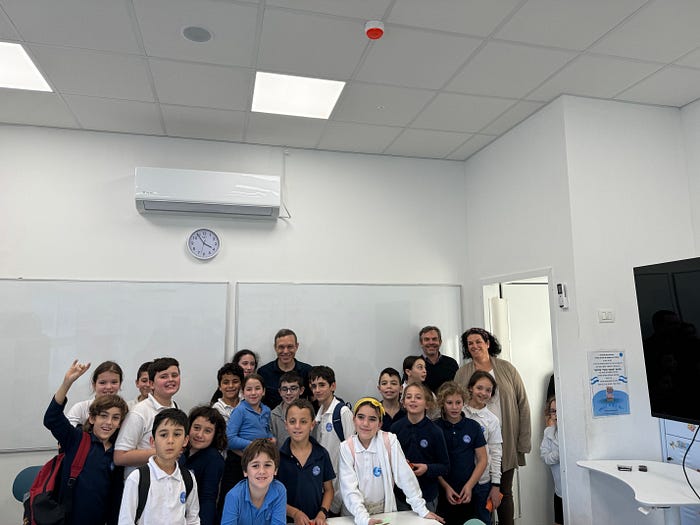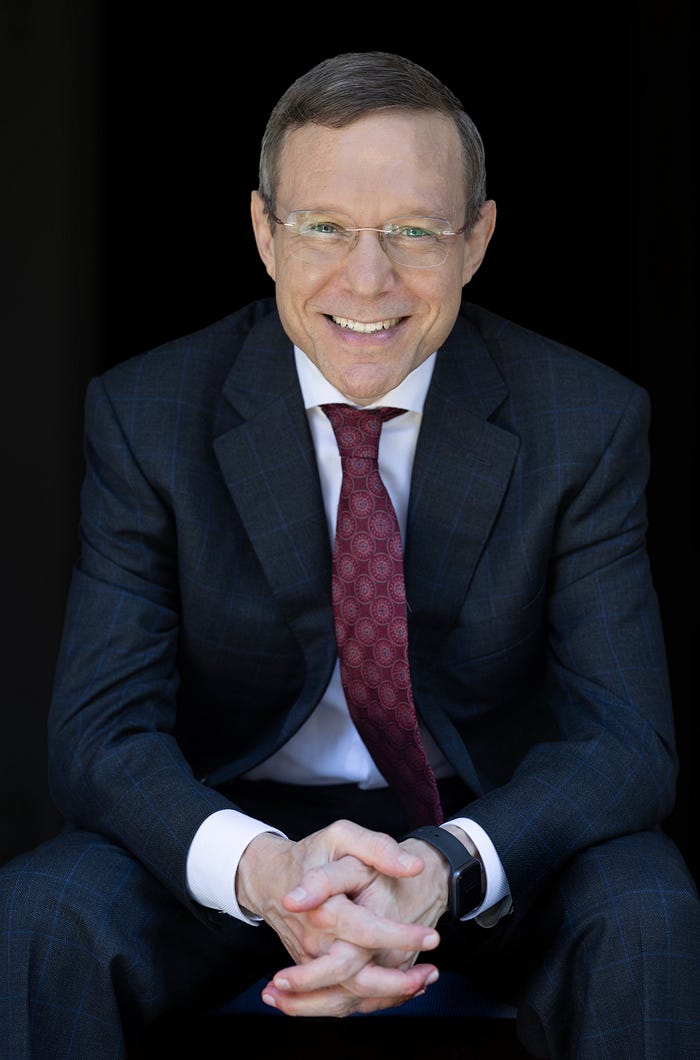
As my rental car entered my childhood village, Moshav Beit Hannan, the roads, trees and buildings looked familiar, as if I left them yesterday and not half a century ago. My parents passed away five years ago, and our farm was sold to strangers. If I had not been tenured at Harvard, I would have happily gone back to live on that farm. I often wonder, especially at these turbulent times of “virtue signaling” that lack the virtue of common sense, whether academia was the right choice for me.
As a kid, I collected chicken eggs every afternoon and drove the tractor to secluded hills where I could immerse myself in reading philosophy books among crimson iris flowers. Nowadays, I am still surrounded by the crimson color in Harvard’s yard, but to my dismay — not many flowers are permitted to rise above the grass level of academia.
I passed the playground near the village synagogue, where we used to play as kids. As I arrived at my childhood home, it looked different. Home is not located just in space because it changes over time. I calculated that my parents were younger than I am today, when I lived there.
Hundreds of feet from my home lies the elementary school where I spent the first eight years of my education. On my first day at school, I entered class and found my classmates jumping up and down on their chairs. I wondered: “Does it make any sense for me to jump with them?” As the teacher entered the room, she said: “Look at Avi as a role model. He is so well behaved.” I felt the urge to correct her and say: “I am not well behaved at all. I just wondered if it made sense to jump up and down. If it did, I would have joined everyone else.” The same hesitation stays with me today. I do not subscribe to social media because imitating others and getting “likes” as a result, does not motivate me at all.
Why did I show up at my elementary school half a century after I left it? Because the principal invited me and I remembered that you never say no to the principal. Although the buildings remained intact, the old public school was transformed to a new format named “Zarkor”, which fosters innovation and excellence among 600 students of ages 4–18, at no cost to their families. The visionary founder, generous funder, and current principal, Michael Friedman, invited me to meet with a select group of students, who prepared many questions for me in advance.
I introduced myself to the students as a farm boy and pointed out that I maintain my childhood curiosity, which was acquired at their age through studies in the same buildings of their school. One of the kids noted: “But you are 61 years old now. How can you still be a kid?” I clarified that a kid is a state of mind — full of wonder and devoid of prejudice, and not a matter of biological age. My answer was ready following a related question that was asked at the end of the physics colloquium that I delivered an hour earlier at the Weizmann Institute of Science. There, a distinguished professor asked: “Why did you spend 1.5 million dollars on a Pacific Ocean expedition to study the materials from the first recognized interstellar meteor, when the chances of it being a natural rock are far greater than a technological product of an alien civilization?” I explained that a kid studies new objects while the “adults in the room” guess the outcome and by doing so miss the opportunity to discover new knowledge.
A school girl asked: “Why did you choose to become a theoretical astrophysicist?” I responded that astrophysics was an arranged marriage, orchestrated by the matchmaker John Bahcall, who offered me a long-term membership at Princeton’s Institute for Advanced Study under the condition that I will switch to study astrophysics. I later realized that I am married to my true love, because astrophysics allows me to address deep philosophical questions using the tools of science. Regarding the choice of theory, I recently shifted to lead the experimental Galileo Project since I cannot rely on others to do the work required to find out whether we are not alone in the universe.
A boy asked: “What is the one thing you regret about your career?” I answered that early on, I did my best to make colleagues happy by conforming to their opinions, and missed opportunities to follow innovative ideas that turned out to be revolutionary. More recently, I decided to rely on common sense and not be swayed by the “adults in the room.”
The class had numerous questions about science, like: “What happened before the Big Bang?” … “How are black holes detected?” … “What happens to an astronaut who enters a black hole?” … “Why did I consider the possibility that the first recognized interstellar objects, namely the aforementioned meteor and `Oumuamua, might be technological in origin?” … There were so many questions that the teachers informed parents that the official closing time was postponed until all kids had an opportunity to ask their prepared questions.
One of the most brilliant kids, who stood in front of me in our group photo, knew how black holes are detected through gravitational waves and how the Sun shines. Towards the end, a bright girl asked me whether I wish to go to space. I answered: “Of course.” She advised me to contact Elon Musk and join him on the surface of Mars. I explained that the surface of Mars is exposed to cosmic-rays and I would much rather enter a lava tube, protected by rock from above.
As I left Beit Hannan in my car, I passed near the empty building of the old “National Pecan Facility” that my father founded in addition to his work on our farm. The building, like my memories, celebrated the past by stating: “I am still here.”
Zarkor means a spotlight in Hebrew. Here’s hoping that the students of the Zarkor school will be inspired by my visit to shed light on one of the big mysteries of our universe. Their curiosity delivered a clear message to me personally: “You are not alone!”
ABOUT THE AUTHOR

Avi Loeb is the head of the Galileo Project, founding director of Harvard University’s — Black Hole Initiative, director of the Institute for Theory and Computation at the Harvard-Smithsonian Center for Astrophysics, and the former chair of the astronomy department at Harvard University (2011–2020). He chairs the advisory board for the Breakthrough Starshot project, and is a former member of the President’s Council of Advisors on Science and Technology and a former chair of the Board on Physics and Astronomy of the National Academies. He is the bestselling author of “Extraterrestrial: The First Sign of Intelligent Life Beyond Earth” and a co-author of the textbook “Life in the Cosmos”, both published in 2021. His new book, titled “Interstellar”, was published in August 2023.
